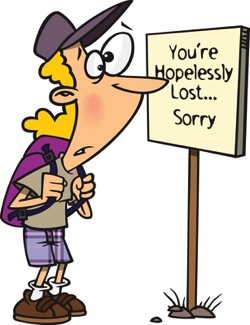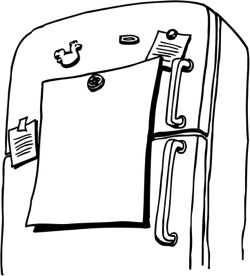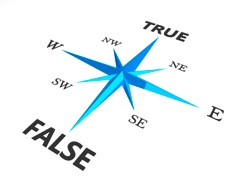Pat Answers
 Is there a question you have a pat answer for? If you’re the parent of a teenager, it’s usually “No.”
Is there a question you have a pat answer for? If you’re the parent of a teenager, it’s usually “No.”
Pat answers are patterned answers. It’s an answer we’ve gotten in the habit of giving. Some of our pat answers are trite and cliched and others are downright limiting.
Some of the cliched ones still work regularly. Here’s one I use almost every time when a store employee says, “Have a nice day.” I respond, “I’m already working on it.” Frankly, I’m getting tired of saying it but it still works to break peoples’ patterns and gets them to pay attention and not just be robotic. I feel like the singer who is tired of singing his hit from 20 years ago, but it still works for the audience.
But pat answers, even the ones that work, limit our depth. Pat answers make us lazy and deprive us and the people we are interacting with from a fuller experience.
I don’t know how many conversations you’ve been in where you can predict what you and another person will say and when. That’s a stale conversation that doesn’t open either of you to anything new. What’s the sense of interacting if all the back and forth is predictable? You could just send the other person a script and skip the spoken portion.
People deserve your depth and so do you. If you’re just giving them cotton candy again, it won’t be satisfying for either of you. Reminds me of a story . . .
Back in my radio days, my job as program director included critiquing the air talent’s work. They would bring in a recording of one of their broadcasts and we would listen together. I heard this one broadcaster introduce a song the same way on three consecutive days. I suggested that they vary the introduction so that listeners get more than their pat introduction. This person didn’t take kindly to my suggestion and indignantly said, “There are only so many ways you can handle a 6 second introduction.” I responded that I could come up with twenty different introductions right on the spot. They challenged me to do so and I did. I wasn’t any more talented than this person, just more resourceful.
I’m suggesting that we avail ourselves to more of our resources rather than continually use the ones that sit top of mind. Using your resources broadens the conversation and opens up new areas to explore, instead of going down the same rabbit hole again.
Pat answers do work and there is a time and place for them. But if that’s all you’re using, your interactions will be superficial and unsatisfying.
How many responses are there for “Have a nice day”? Become resourceful and find out. In the process, you will discover more of your depth and your conversations will be more alive, rather than another recitation of the “Dead Sea Scrolls.”
All the best,
John
Be Sociable, Share!

 The Grasshopper usually delivers “How to” vs. “How not to” messages, but over the weekend he departed from the practice and said this: “You know you’re not going to make it if you’re waiting for your ship to come in and you’re not even at the dock.”
The Grasshopper usually delivers “How to” vs. “How not to” messages, but over the weekend he departed from the practice and said this: “You know you’re not going to make it if you’re waiting for your ship to come in and you’re not even at the dock.” “Create an environment” goes hand-in-hand with “Build a Life” in the “words to live by” department.
“Create an environment” goes hand-in-hand with “Build a Life” in the “words to live by” department. Call me late to the party on the following distinction but it just dawned on me that there is a difference between being out of shape and being out of condition.
Call me late to the party on the following distinction but it just dawned on me that there is a difference between being out of shape and being out of condition. Is it better to be inside looking out or, as the old love song goes, on the outside looking in? It depends.
Is it better to be inside looking out or, as the old love song goes, on the outside looking in? It depends. My computer dictionary describes “Remarkable” as worthy of attention; striking: a remarkable coincidence.
My computer dictionary describes “Remarkable” as worthy of attention; striking: a remarkable coincidence. “Resistance justifies you from making the change you desire.“ So said The Grasshopper on a hot Friday in July.
“Resistance justifies you from making the change you desire.“ So said The Grasshopper on a hot Friday in July. The Grasshopper was on vacation for a few days but came back all tanned and refreshed yesterday and offered this: “You’re the best at being you.”
The Grasshopper was on vacation for a few days but came back all tanned and refreshed yesterday and offered this: “You’re the best at being you.” Are you part of the “special rules” club? I know that, at one time, I was a card carrying member. Here’s one of the things I learned: I’m not exempt.
Are you part of the “special rules” club? I know that, at one time, I was a card carrying member. Here’s one of the things I learned: I’m not exempt. The biggest lesson I am in the process of learning is letting go of “know.” The text book has yet to be written but the opening chapter is quite revealing.
The biggest lesson I am in the process of learning is letting go of “know.” The text book has yet to be written but the opening chapter is quite revealing.